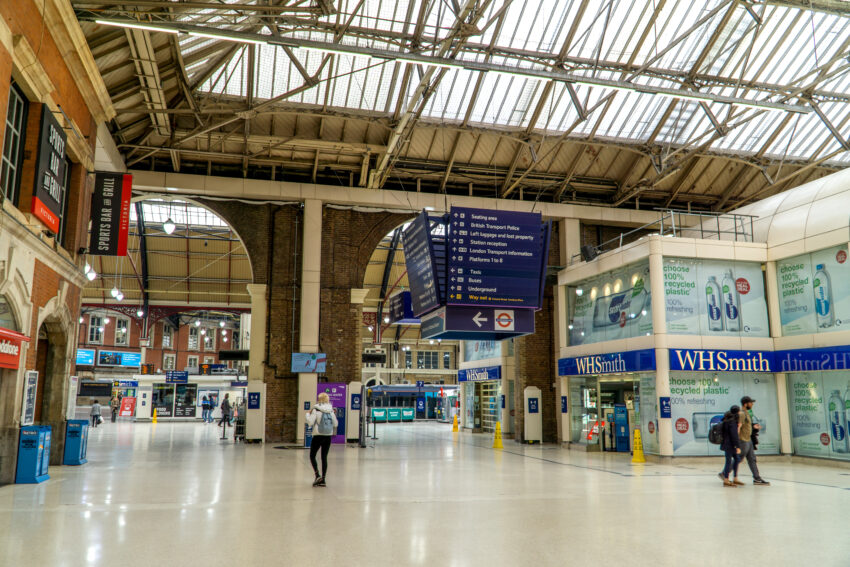Further train strikes have been announced by rail staff, stoking fears of severe travel disruption for millions of passengers over the festive period as the transport system is struck by widescale industrial action.
It comes as RMT announced that security staff working for Eurostar will strike for four days in the run-up to Christmas, action the union said would “severely affect” services and travel plans.
The Transport Salaried Staffs’ Association (TSSA) said that staff in operational, station, and onboard roles will take action at beleaguered train operator Avanti West Coast on 13, 14, 16 and 17 December.
Further industrial action is scheduled for 17 December at c2c which serves a number of stations between east London and south Essex.
Action short of a strike, which means TSSA members will only carry out contractually required duties, will take place in the run-up to Christmas across a dozen train operating companies and Network Rail.
Meanwhile, disruption is expected in the capital on Thursday as thousands of bus drivers strike in London for seven days in December.
TSSA’s fresh action comes as rail passengers face further disruption with a flurry of industrial action on the rail network in December.
Members of the RMT working for Network Rail and the 14 train operating companies will strike on 13-14 and 16-17 December, with a further two strikes on 3-4 and 6-7 January.
TSSA organising director, Luke Chester, said: “We have decided to push ahead with further industrial action because it’s vital that the train companies and the government understand that our demands are not going away.
“Our union has spent the past three weeks in talks, and though some progress has been made, it remains the case that ministers are just not willing to open up space for a negotiated settlement.”
Network Rail and the Department for Transport have been approached for comment.
Workers who clean trains and railway stations are also striking on 22-23, and 31 December.
More than 1,000 contracting cleaning staff working for the likes of Churchill, Atalian Servest and Mitie could strike in the dispute over pay, conditions and pensions, say RMT.
RMT’s general secretary Mick Lynch met the transport secretary, Mark Harper, for the first time last week for talks, but there was no breakthrough in the long-running dispute.
Border Force staff have also voted for industrial action, raising the prospect of lengthy queues at airports and ports all over the country as people visit friends and family over the festive period.
It was revealed earlier this week that soldiers standing in for Border Force members of the PCS union will wear their uniforms while checking passports.
And security staff working for Eurostar will walk out on 16, 18, 22 and 23 of December in a dispute over pay.
More than 100 staff, employed by facilities management company Mitie, are expected to take part in the industrial action.
RMT general secretary, Mick Lynch, said: “Eurostar security staff are essential to the running of Eurostar, and it is disgraceful they are not being paid a decent wage.
“They work long unsocial hours and a multimillion-pound company like Mitie can easily afford to pay them decently for the essential work they do.”
A Eurostar spokesperson said: “We are aware that negotiations between Mitie and the unions are ongoing. If there is any impact on services we will update customers as soon as possible.”
A spokesperson for Mitie said: “We’re disappointed that RMT has made the decision to undertake industrial action, given we have already offered a significant pay increase and pay negotiations are ongoing. We remain open to continuing these discussions.
“In addition, we recently announced a £10m winter support package, designed to help the lowest paid colleagues across Mitie with the rising cost of living.
“As always, our priority is to ensure that exceptional services are delivered as normal so that passengers are able to continue their journeys with minimal disruption.”
Elsewhere in the economy, NHS workers, such as nurses, paramedics and 999 call handlers, have also backed stoppages in a ballot.


